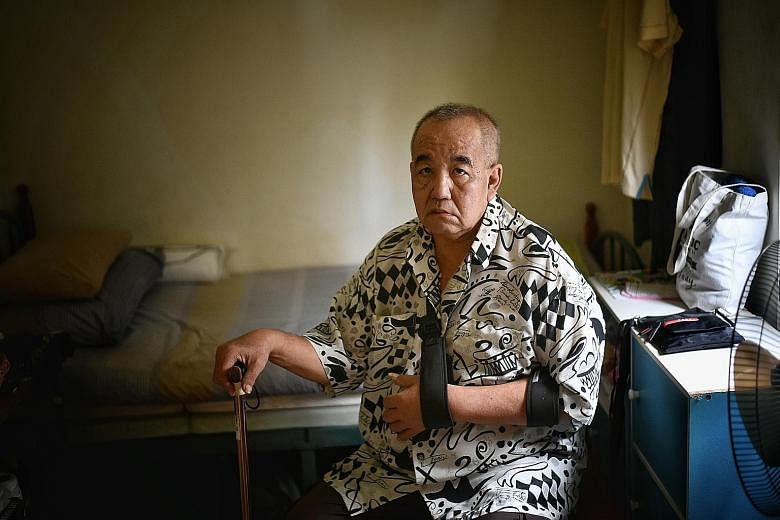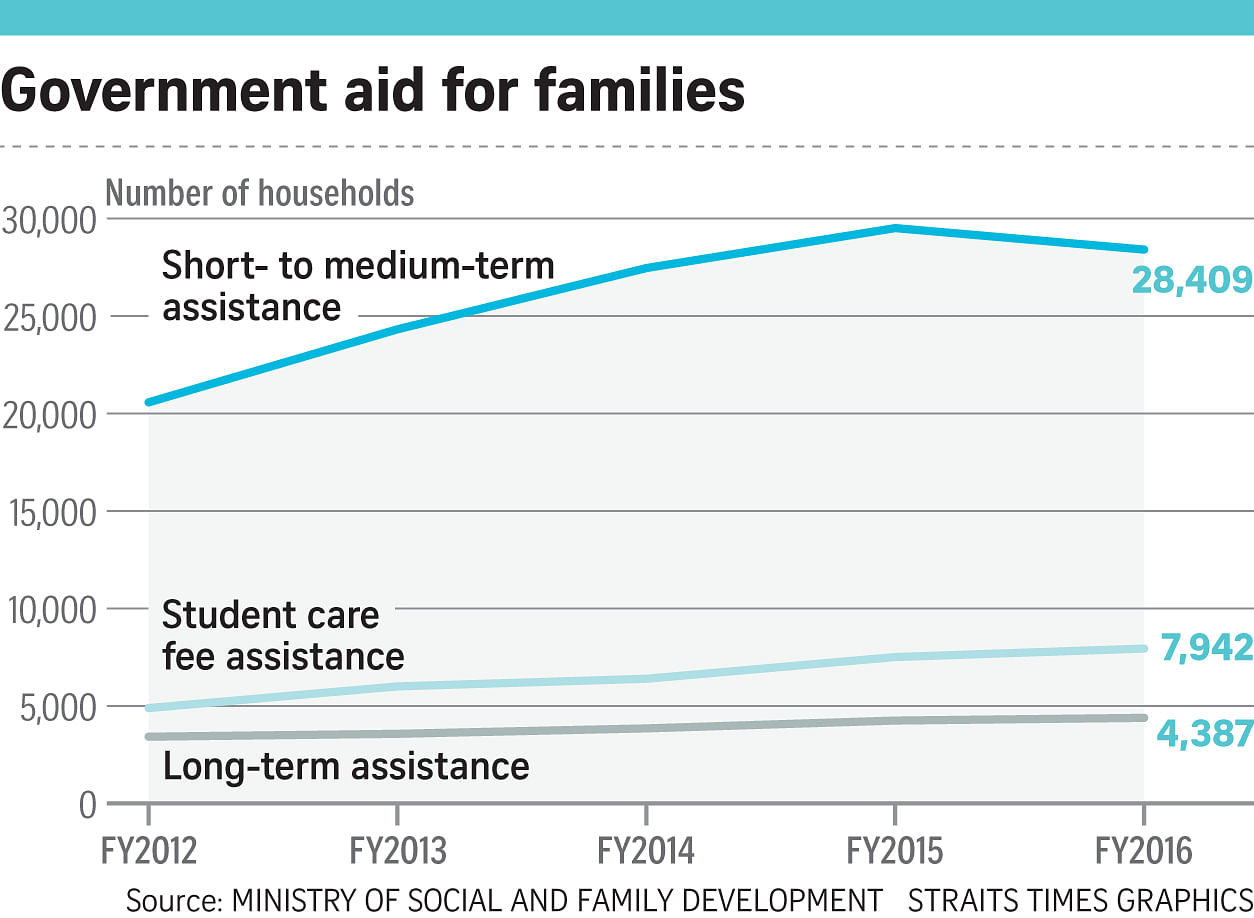Mr Maswadi Sujaie, 63, was at his wits' end when he suffered a stroke in July.
Weak and broke, the divorcee could not continue working as a part-time courier, which had given him an income of about $400 to $500 a month. The $100 a month his daughter gave him was not enough to get by. His other child, a son, is dead.
So Mr Maswadi turned to the Government for help. Since last month, he has been receiving $350 a month for six months under the Short to Medium Term Assistance scheme. He said: "It is enough to pay for my 'makan' (meals in Malay), rent and electricity. If it's not enough, I have to stretch it until it's enough."
Mr Maswadi is one of thousands of beneficiaries of a help scheme under the Community Care Endowment Fund (ComCare Fund). It is one of the key social safety nets for poor families and most of the households being helped are on the Short to Medium Term Assistance Scheme.
In the Ministry of Social and Family Development's (MSF's) last financial year, which ended in March, figures show 28,409 households were on the same scheme, down 4 per cent from the 29,511 households the year before.
It is the first time in five years that there has been a dip. In the four previous years, there was a steady climb in the number of households on the scheme, according to data in the ComCare Trends Report released yesterday.
The length and amount of aid given for the scheme depends on the applicant's needs, said an MSF spokesman. But social workers said the sum given is usually $300 and upwards a month, and often for between three and six months.
The scheme is meant for those who are temporarily unable to work - due to an illness, for instance.
The upward trend in the previous four years followed two tweaks made to the scheme.
In 2013, the MSF started a network of Social Service Offices (SSOs) to provide more accessible and coordinated social aid to needy Singaporeans. And the next year, the monthly household income cap was raised from $1,700 to $1,900, so more families could qualify for help.
The MSF spokesman said the ministry will continue to monitor the trend and see if it stabilises, with the entire network of 24 SSOs rolled out in 2015. Social workers said the dip could be part of a fluctuating trend.
The ComCare Trends Report also revealed that for households under the scheme, more of the heads of families are not working. This rose from 48 per cent in 2012 to 53 per cent in the ministry's last financial year. Many of them were medically unfit for work or retired, the MSF said.
Ms Tan Bee Joo, director of the Singapore Children's Society Yishun Family Service Centre, said some of the unemployed were retrenched and could not find a new job.
In its last financial year, the MSF gave out $130 million in ComCare help schemes to about 83,000 beneficiaries. The sum given out has increased from $106 million in FY 2012.
MSF Minister Desmond Lee said: "Over the past five years, we have seen a significant increase in ComCare support to more individuals and families, as awareness of and accessibility to ComCare assistance have been enhanced with the setting up of our SSOs in the community."
-
More on public assistance scheme
-
With an ageing society, the number of destitute elderly who depend on Government financial aid continues to rise.
A total of 4,387 households were on the long-term assistance scheme during the Ministry of Social and Family Development's last financial year, which ended in March.
This is more than the 4,248 households in the 2015 financial year and 28 per cent more than the 3,420 households in the 2012 financial year.
The numbers on the scheme, also known as the public assistance scheme, rose each year in the past five years.
Social workers say the numbers will continue to rise given the rapidly ageing population, and there is no limit to the length of aid provided under the scheme as it is for those who cannot work due to old age, illness or unfavourable family circumstances.
Ms Joyz Tan, senior social worker at Fei Yue Community Services, say some of these elderly have children who cannot afford to support them.
A person on the scheme gets $500 a month, plus other forms of help such as free medical treatment at polyclinics.
According to the ComCare Trends Report released yesterday, the largest proportion of those on long-term assistance were aged 65 and older, had primary or lower level of education and were single.
Theresa Tan
Associate Professor Irene Ng, of the National University of Singapore Social Work Department, said more people will need financial aid in the future, given the economic challenges that are making low-skilled jobs more precarious. "Elderly persons will be more badly affected," she added.



